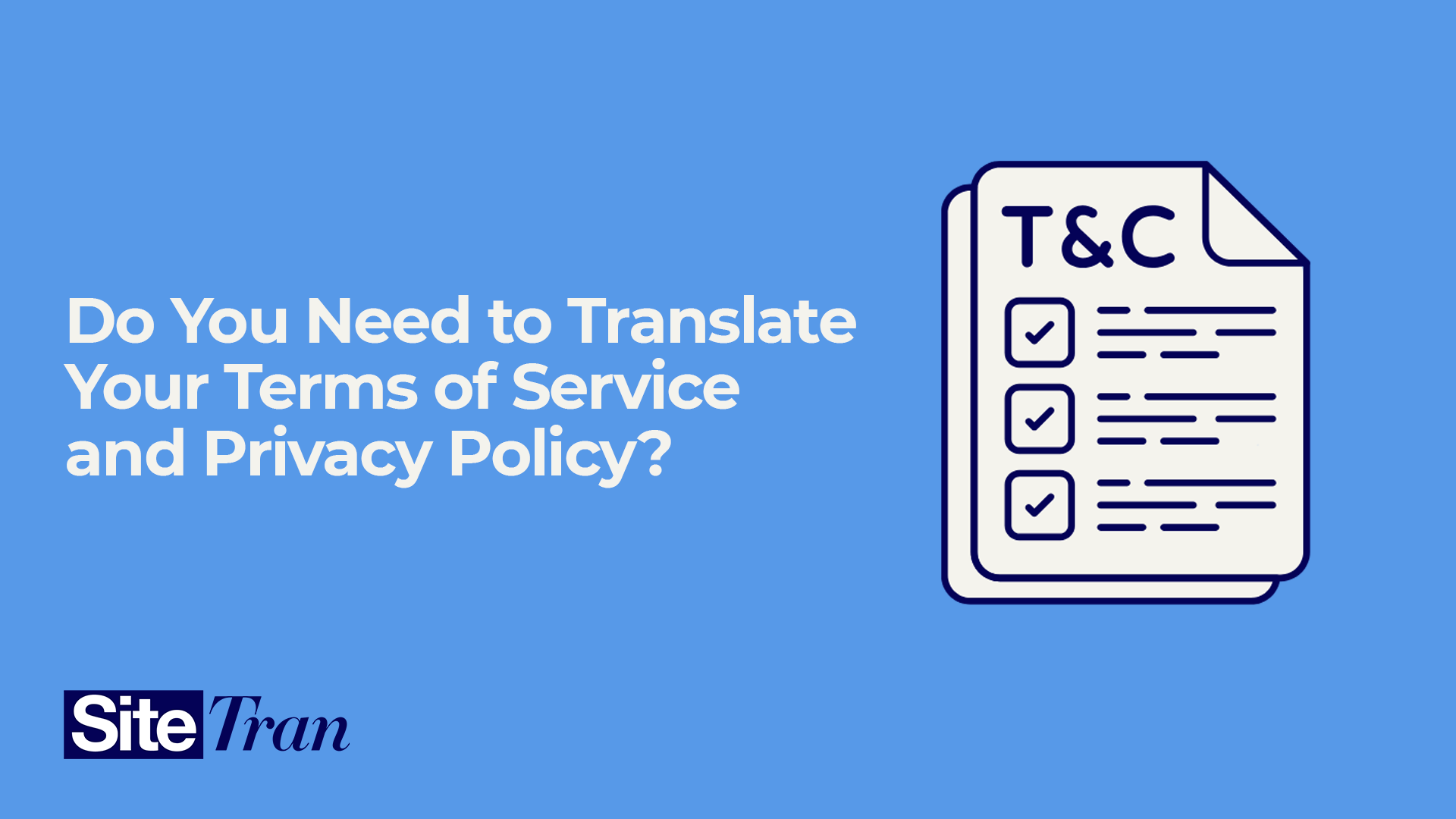
Do You Need to Translate Your Terms of Service, Privacy Policy, and Other Legal Documents?
Disclaimer: SiteTran does not provide legal advice, and nothing in this article should be interpreted as legal advice.
Translating legal documents can be a complex and time-consuming endeavor. While it may not always be legally required, it’s worth considering whether translation aligns with your business objectives, compliance needs, and commitment to providing a clear and inclusive user experience. Here's a look at the potential benefits and risks, along with best practices for making an informed decision.
Why Translating Legal Documents Matters
1. Legal Compliance by Region
- Canada: If your business uses a “.ca” domain or serves French-speaking areas like Quebec, translating legal documents into both English and French is mandatory. This ensures compliance with Canadian bilingualism laws while respecting the local audience.
- United States: While there’s no federal language requirement, states like California and Texas, with large Spanish-speaking populations, present an opportunity to demonstrate cultural awareness. Translating legal content into Spanish can enhance accessibility and user trust.
- Europe (GDPR): The General Data Protection Regulation (GDPR) requires privacy policies and terms to be presented in clear, comprehensible language. To comply, businesses targeting EU audiences often translate these documents into the region’s major languages.
2. Building Trust and Inclusivity
Providing translated terms of service and privacy policies demonstrates transparency and a commitment to your users’ understanding. It signals inclusivity, enhances your global reputation, and fosters user loyalty—key to building trust in international markets.
The Risks of Not Translating Your Legal Documents
1. Legal Challenges
Failing to translate legal agreements can expose your business to risks, such as claims that users didn’t understand your terms due to language barriers. In some jurisdictions, this could even render agreements unenforceable.
2. Reputation Concerns
Lack of multilingual support may harm your brand’s image. Users might perceive your business as neglecting their needs, potentially reducing trust and engagement.
3. User Misunderstanding
Legal language is complex even for native speakers. Without translation, non-native speakers may skip reading or misinterpret your terms, leading to confusion or disputes.
If You Choose Not to Translate
If translating your legal documents isn’t feasible, it’s standard practice to include a clause specifying that the English version governs the terms. For example:
"In the event of any discrepancy between the English version of this Agreement and any translation, the English version shall prevail. Translations are provided for convenience only."
This approach can mitigate potential legal risks while maintaining clarity for your users.
Benefits of Translating Legal Content
1. Expanding Market Reach
Translated legal documents make your business more accessible, enabling you to confidently serve new markets while ensuring users understand their rights and obligations.
2. Meeting User Expectations
International users often expect websites in their language to include translated legal documents. This enhances their experience and reflects professionalism.
3. Strengthening Legal Protections
Accurate translations can reinforce the enforceability of your terms in case of disputes, protecting your business and clarifying expectations for users.
Best Practices for Translating Legal Content
1. Use Professional Legal Translators
Legal terminology varies significantly across jurisdictions. Professional translators ensure accuracy, preserving the original intent and compliance with local standards.
2. Account for Cultural Nuances
Legal phrases may not have direct equivalents in other languages. Expert translators adapt content to align with cultural expectations without compromising legal accuracy.
3. Conduct Quality Assurance Reviews
Having native-speaking legal experts review translations ensures they meet local requirements and are easily understood by your audience.
Conclusion
Translating legal documents is not a one-size-fits-all requirement. Instead, it’s a strategic decision that should consider your target audience, compliance needs, and broader localization goals. Whether you choose to translate or rely on clauses specifying the governing language, transparency and user trust should remain your priorities.
If your business decides to translate legal documents, tools like SiteTran can simplify the process. SiteTran streamlines localization, ensuring your content is accurate, culturally aligned, and compliant with local regulations—so you can focus on building trust and expanding your global reach.
